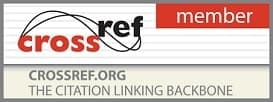P-ISSN: 2663-3329, E-ISSN: 2663-3337

Printed Journal | Refereed Journal | Peer Reviewed Journal
2020, Vol. 2, Issue 1, Part A
The influence of customer equity towards WOM behavior through purchase intention
Ida Bagus Nyoman Udayana, Ida Ayu Purnama, Ambar Lukitaningsih and Didik Subiyanto
Background of the study: This research was conducted in the tourism object at the Gumuk Pasir Parangkusumo. The tourist destination is one of the regional revenues that can be relied on by local governments to develop their territory. However, the level of tourist visits has not increased significantly, especially those traveling on the Gumuk Pasir Parangkusumo have not been encouraging.
Methodology: Population in this study were visitors to the tourism object Gumuk Pasir Parang kusumo Yogyakarta, 150 respondents were taken as samples. Test the validity and reliability of the data. There are four measurements to test the construct validity. Convergent validity, construct reliability, discriminate validity and extracted variants. Amos is used for data analysis and hypothesis testing.
Findings: The results of this study indicate: value equity affects the purchase intention. Brand equity has a significant positive effect on purchase intention. Relationship equity has a significant positive affects on purchase intention. Purchase intention influences WOM behavior.
Conclusions: Value equity can be formed through adequate service quality, comfort and the ability to provide reasonable prices for customers. Brand equity can be formed through increasing customer awareness of the existence of the product. Creating customer service can be done through understanding and fulfill customer needs and desires. Emotional ties are always enhanced. Customer satisfaction is always improved. Satisfied customers can disguise good information about the product.
Pages : 09-15 | 1951 Views | 1161 Downloads
How to cite this article:
Ida Bagus Nyoman Udayana, Ida Ayu Purnama, Ambar Lukitaningsih, Didik Subiyanto. The influence of customer equity towards WOM behavior through purchase intention. Int J Res Marketing Manage Sales 2020;2(1):09-15. DOI: 10.33545/26633329.2020.v2.i1a.39
Related Journals
Related Journal Subscription
Related Links





 Other Journals
Other Journals
